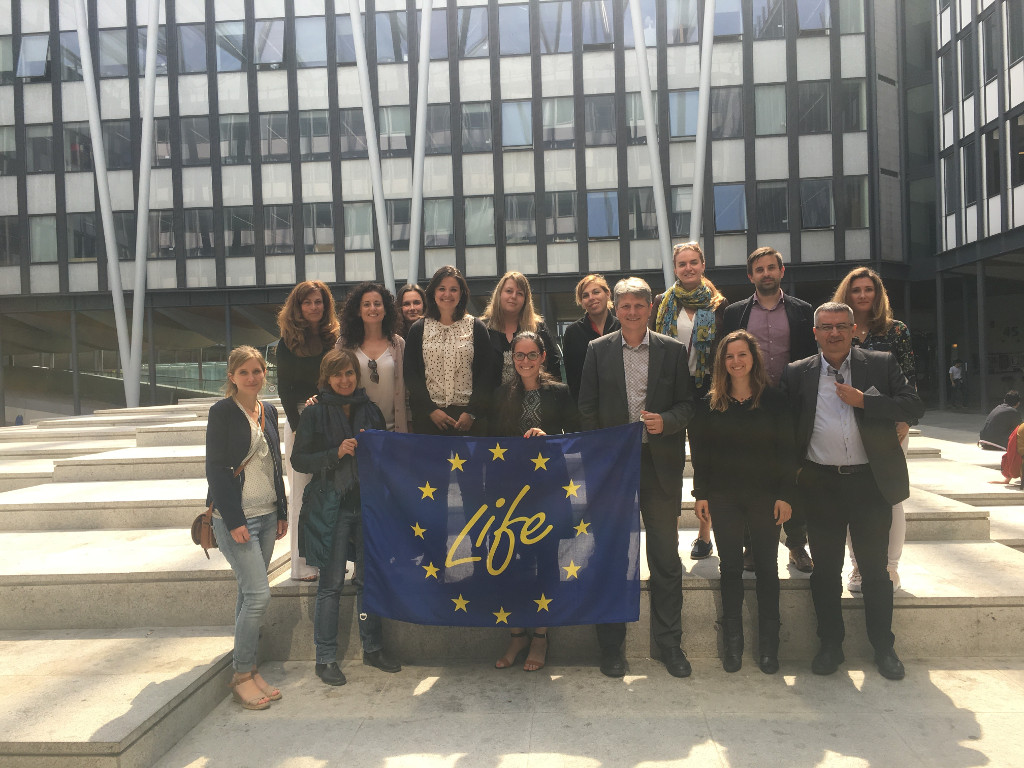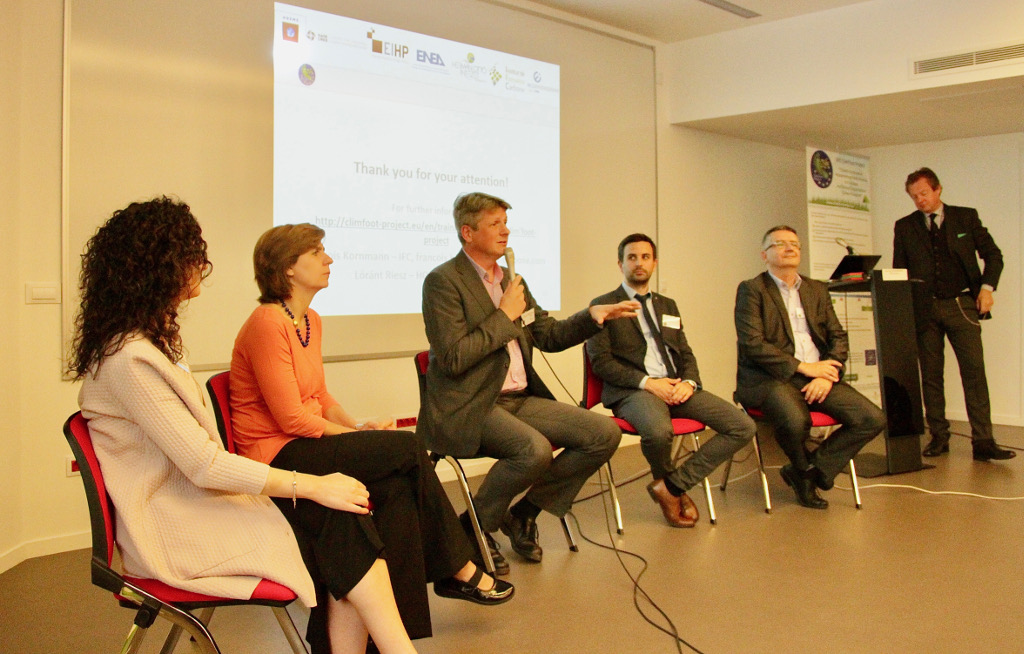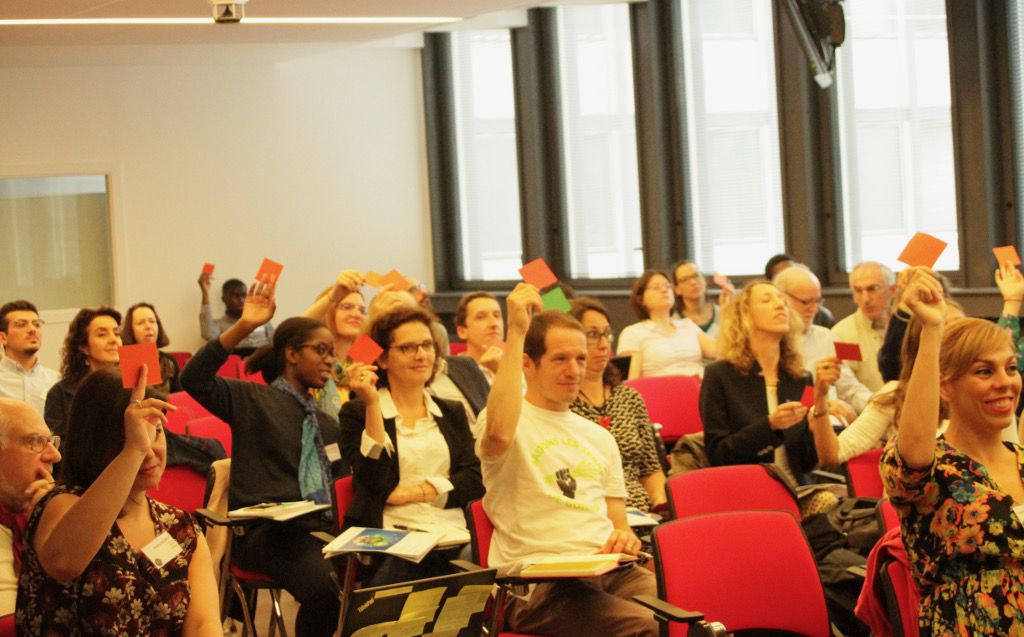July 2018 - Clim'Foot
Α) Identity of the project
| Title/ N° |
"CLIMATE GOVERNANCE: IMPLEMENTING PUBLIC POLICIES TO CALCULATE AND REDUCE ORGANISATIONS CARBON FOOTPRINT" - Clim’Foot LIFE14 GIC/FR/000475 |
| Duration |
September 2015 - August 2018 |
| Budget |
€1.4 million |
| Beneficiaries | |
| Location of activities |
France, Greece, Croatia, Italy, Hungary |
| Website | |
| Contact |
ADEME => Philippe Masset This email address is being protected from spambots. You need JavaScript enabled to view it. CRES => Louiza Papamikrouli This email address is being protected from spambots. You need JavaScript enabled to view it. |
Description/Aim
The LIFE Clim'Foot project addresses the lack of tools and methodology (other than EU-ETS) for the implementation of national public policies aimed at reducing the carbon footprint of organisations in the countries of the European Union.
More specifically, the project goals are:
- to launch a dynamic European network for carbon footprint calculation;
- to train end-users and give them the tools for calculating and reducing the carbon footprint of all sorts of organisations;
- to develop training tools adapted to each country;
- to develop an European platform that will be used for implementing 5 National public policies to reduce Carbon Footprint of Organisations (CFO);
- to involve local actors (decision-makers, investors, public bodies) in reducing greenhouse gas emissions.
Β) Best Practices
The design and the implementation of voluntary programmes to develop carbon accounting in the five participating countries, at different levels depending on the maturity of practices in each country were at the core of the project. Furthermore, the definition of carbon management strategy and mitigation plans for Croatia, Italy and Hungary and the improvement of these practices in France provide very good examples for replication. In fact replication is planned both for the participating countries as well as in new countries outside the consortium. More specifically, the voluntary programme comprises a stand alone training package (online training, on site training), the Bilan Carbone© Climfoot method free calculation tool tailored to each country and constant support.
The dissemination of the project and the voluntary programmes in particular have served as an inspiration for policy makers and end users alike. In fact students from 5 schools in Italy have already been trained along with their teachers for the calculation of their schools’ carbon footprint. Metropolitan regions discuss the implementation of these programmes in their territory in the near future. The companies involved claim that the support received by consortium partners during the programme implementation was pivotal to its successful completion.
C) Results
The project to be completed in August 2018 has delivered some great outcomes with regards its initial objectives. Key figures up to date comprise:
5 national databases of emission factors
1066 Country-specific EFs included in the Clim’Foot database
5 Toolboxes developed under the Clim’Foot project
4 CFO calculation tools adapted to the context of each partner country
306 People trained in CFO assessment and management under the project
13 On-site training sessions in the5 countries
74 Private organisations involved in training sessions
35 Public organisations
40 Policy makers attended in the 2 webinars
19 Countries represented in the project’s final events
One of the major aim of the project is to spread all over Europe common methodologies and standard databases for calculating Organisation’s carbon footprint. In this context, the situation in different European countries should be analysed, in order to identify which countries might be interested in the implementation of the project approach for the calculation and reduction of organisations’ carbon footprint.
Any interested party can access the training toolboxes on the project website http://www.climfoot-project.eu/en and can contact the project team who is prepared to assist with questions and provide recommendations for the project’s replication. As far as Greece is concerned, CRES is investigating the opportunity to team up with relevant ministries so as to create a dynamic for the voluntary programme’s replication in significant public sector bodies.





